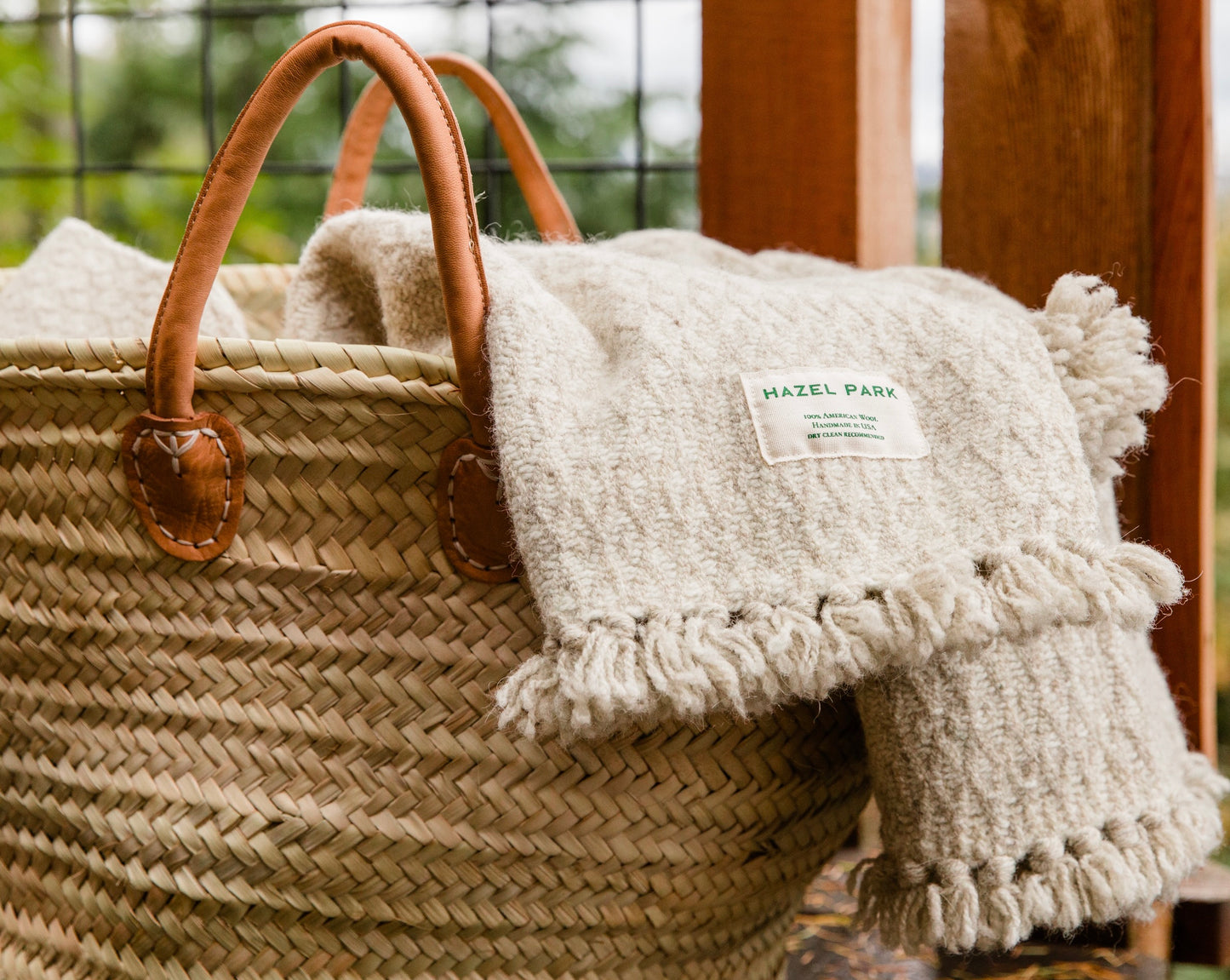Plastic & the Textile Industry: Why Hazel Park is Ditching the Plastic Poly Bag

Plastic is a ubiquitous material in the textile industry. It is used in a variety of ways, from packaging to garment production. However, the use of plastic has a significant impact on the environment and human health. Plastic pollution is a serious problem that affects the world's oceans, wildlife, and ecosystems. In this blog post, we will explore how plastic impacts the textile industry, and why companies like Hazel Park are ditching plastic in favor of more sustainable options.
Plastic pollution in the textile industry is a significant problem. According to the Ellen MacArthur Foundation, the textile industry produces one tonne of fabric for every person on earth each year, and 60% of all textiles are made from synthetic fibers, most of which are plastic-based. This means that the textile industry is a significant contributor to plastic pollution, and the use of plastic in garment production has a significant impact on the environment.
One way that plastic impacts the textile industry is through packaging. Plastic Poly Bags are commonly used to package garments, and they are often discarded once the garment is purchased. These Poly Bags can take hundreds of years to decompose, and they often end up in landfills or the ocean, contributing to plastic pollution. There are more sustainable options, but most companies focus their sustainability efforts on things that the customer sees. However there is still significant waste being created behind the scenes. Hazel Park, a sustainable home decor company based in the United States, recognized the harmful impact of plastic packaging and waste created through the entire supply chain, and has recently ditched the plastic polybag in favor of a recyclable paper alternative.
Plastic has a significant impact on the textile industry, from packaging to garment production. The use of plastic in the textile industry contributes to plastic pollution, which has a harmful impact on the environment and human health. Companies like Hazel Park are taking steps to reduce their plastic use and promote sustainability in the industry. As consumers, we can also make a difference by choosing to buy products that are made without the use of plastic. Together, we can reduce the impact of plastic on the textile industry and create a more sustainable future.
Citations:
- Ellen MacArthur Foundation. (2017). A New Textiles Economy: Redesigning Fashion's Future. Retrieved from https://www.ellenmacarthurfoundation.org/publications/a-new-textiles-economy-redesigning-fashions-future
- United Nations Environment Programme. (2018). Single-Use Plastics: A Roadmap for Sustainability. Retrieved from https://wedocs.unep.org/bitstream/handle/20.500.11822/25496/singleUsePlastic_sustainability.pdf?sequence=1&isAllowed=y



